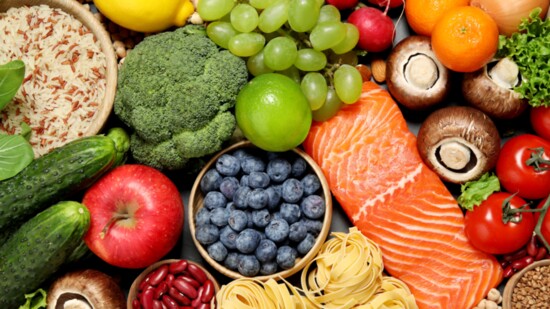In today’s world, the link between diet and health is undeniable. Scientific research consistently shows that what we eat plays a crucial role in preventing disease, boosting immunity, and promoting overall wellness. "Food is either creating disease or preventing disease," according to Dr. Chippy Ajithan, a cardiologist at Heart Specialists of Sarasota.
Medical professionals and dietitians alike agree that nutrient-dense foods and balanced diets are essential for maintaining health and reducing the risk of chronic conditions. With the right dietary choices, we have the power to shape our health and well-being.
Dr. Ajithan believes that good nutrition is one of the keys to a healthy life, and Sarasota Memorial Hospital Dietitian Laura McLeroy agrees. That’s because “strengthening the body’s immune system hinges on the food we eat,” she explained.
McLeroy recommended incorporating nutrient-dense, "powerhouse" foods–such as berries, citrus, fish, beans, yogurt, tomatoes, and both cruciferous and colorful vegetables–into our diets. These foods combat illness-causing free radicals and help prevent chronic conditions like heart disease and cancer. To maximize these benefits, McLeroy further advised focusing on obtaining essential nutrients from unprocessed foods rather than relying on supplements.
Amid the countless diet options available, the Mediterranean diet, and plant-based diets, stand out as the most effective for promoting overall health, focusing on wellness rather than just weight loss. Studies have associated both food plans with improved blood sugar control, heart health, and even brain function.
- Research consistently shows that diets rich in vegetables, fruits, and whole grains and low in animal products are among the healthiest. The Mediterranean Diet, known for its balanced variety of healthy fats, proteins, and carbohydrates, is linked to reduced inflammation, cardiovascular disease, and certain cancers.
- Plant-Based: Plant-based eating promotes overall health by emphasizing whole foods like fruits, vegetables, grains, and legumes. It’s linked to lower risks of chronic diseases, improved digestion, and increased energy. This sustainable diet nourishes both the body and the planet.
Dr. Ajithan cautioned that major dietary changes can be challenging, so start small. Slowly reduce processed foods and cut back on red meat and poultry while, at the same time, increasing your intake of vegetables, fruits, and whole grains. In this way, "we crowd out animal protein with plant-based choices," she said.
Making a Plant-Based Transition
Author Kiki Nelson, in her new book “Plantfully Simple,” embraces the idea that life and food should be simple and joyful. The book offers more than just recipes; it’s a guide to a healthier lifestyle.
The author recommends transitioning to a plant-based diet gradually over three weeks or more. "Start by swapping your old meals for plant-based ones," she advised. "Focus on easy, simple meals without worrying about protein or macros at first." As you progress, she suggests incorporating more whole foods and cutting out refined, calorie-dense packaged items.
Nelson also encourages a shift in thinking: “Instead of focusing on protein, carbs, and fats, think of your meals in terms of a side of non-starchy vegetables, a side of starchy vegetables like brown rice or chickpeas, and finish with some fruit for dessert.”
Nourishing Your Life & Break Free from Diet Culture
If healthy eating feels like an uphill battle, it might be time to explore the insights of registered dietitian, nutritionist, and author Shana Minei Spence, MS, RDN, CDN. In her new book, “Live Nourished: Make Peace with Food, Banish Body Shame, and Reclaim Joy,” Spence guides readers on a journey to heal their relationship with food. She delves into concepts like intuitive eating and health at every size, offering a compassionate approach to wellness.
Live Nourished isn’t just another diet book—it’s a roadmap to living, moving, and eating in a way that truly works for you. Spence’s message is clear: by separating our self-worth from diet culture, we can learn to eat when we’re hungry, honor our body’s unique needs, and find pleasure in food—all while nourishing both body and soul.
Progress, Not Perfection
Spence emphasizes that every positive choice, no matter how small, is an investment in your health and happiness. "Whether it’s choosing to spend more time outside and less time in front of a screen, investing in a portable water bottle to stay hydrated, or saying yes to brunch with friends without worrying about restrictive diets—any progress is still progress. And remember, there's no such thing as perfect anything."
Food is either creating disease or preventing disease.
We can learn to eat when we’re hungry, honor our body’s unique needs, and find pleasure in food!
